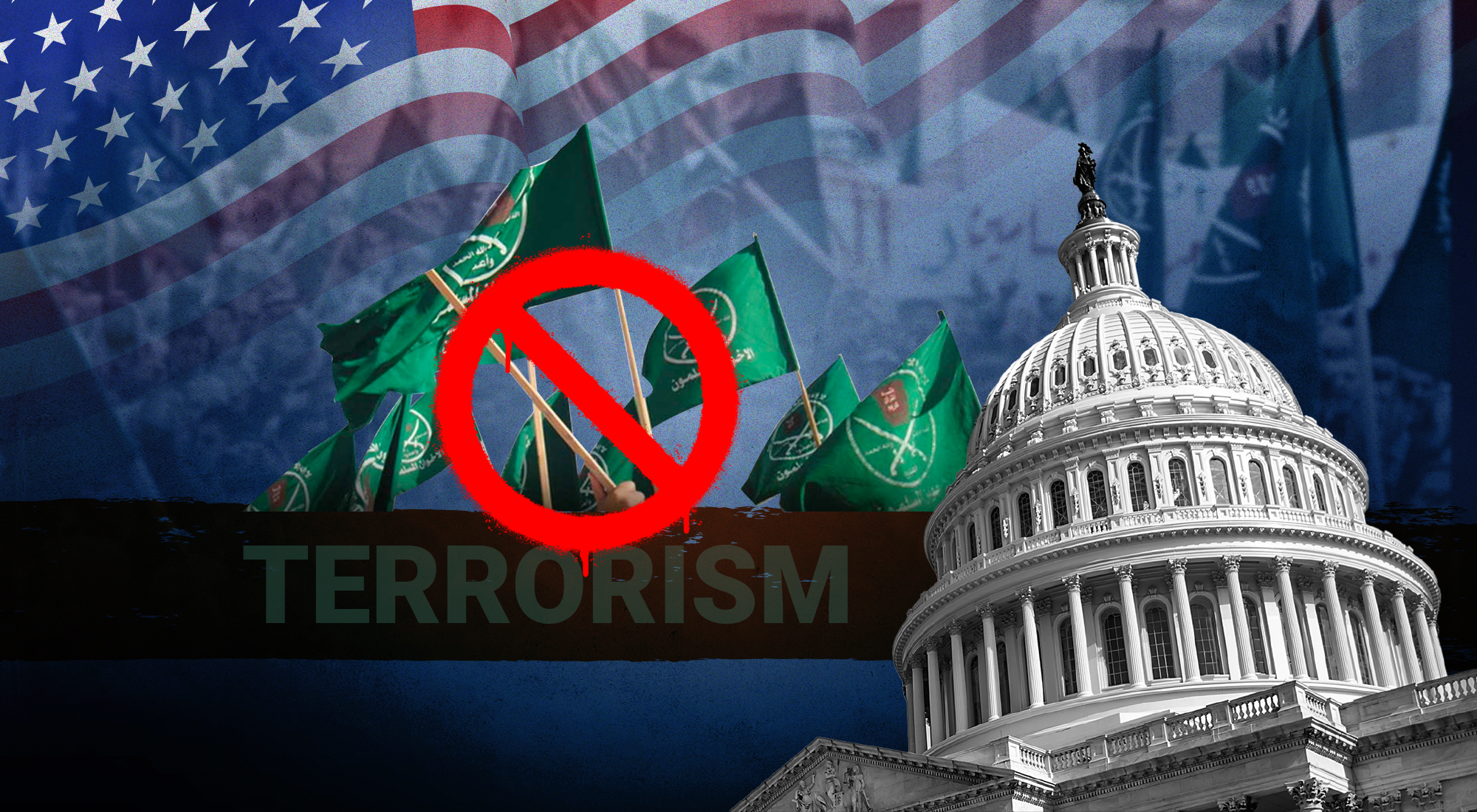With the recent deadly attacks on French soil, it is pertinent to shed some light on the real underlying problem threatening various European countries, especially Germany, in the past few years, namely the Muslim Brotherhood’s ideology.
Bundesamt für Verfassungsschutz (BfV), the German Federal Office of the Protection of the Constitution, has warned of the imminent danger posed by the organization and designated the Brotherhood as “totalitarian.” The country’s intelligence service concluded that the Islamist organization poses “a greater threat to democracy than terrorist organizations such as Al-Qaeda or the ISIS…” An internal intelligence report, released by the Verfassungsschutz, stated that the Brotherhood is a threat to the constitutional and democratic principles of the state.[1]
According to the report issued by the Bundesverfassungsschutz, one-tenth of Germany’s mosques have been monitored for suspected extremist activities.
In the state of North Rhine-Westphalia, for example, 109 mosques are under constant intelligence surveillance. Around 70 of these mosques are believed to be Salafist, and 16 of them under the Muslim Brotherhood’s extremist influence. Unfortunately, this state surveillance has pushed extremist activities outside of mosque premises, making clandestine-covert actions all the more likely.
In response to the report, the interior ministry of the state of Mecklenburg-Western Pomerania stated that it was seriously considering introducing “mosque financing based on the church model” to eliminate foreign funding. Raising mosque revenues from the local Muslim community, along the lines of a mosque tax, would help minimize the disproportionately strong foreign directed extremist influence over the local Muslim community and cut down on the significant amounts of foreign funding, specifically from Turkey.
Severely restricting external funding would make Islamic institutions reliant on the tithes of Muslims residing in Germany and ultimately more responsive to the moderate majority community’s views.[2]
Extremism in Europe: A background
It is difficult to gauge the exact membership numbers of Islamist extremists in Europe since most of them have consistently practiced an “under the radar” approach. According to official sources, there are many as 85,000 Islamist extremists in the United Kingdom, the Netherlands, France, Germany, Belgium, Spain, and Switzerland.
This number could exceed 100,000 if Denmark, Norway, Sweden, Finland, Italy, Portugal, and Greece are included. Tracking them all is an impossible task for law enforcement and intelligence agencies since full-time surveillance operations can require as many as 10 to 20 officers for just one individual.[3]
Historically, the movement has been well-established in Germany since the 1950s. The Muslim Brotherhood’s headquarters remain in the Islamic Center in Munich. However, it controls other Islamic centers in Frankfurt (Main), Marburg, Nuremberg, Stuttgart, Cologne, Munster, Braunschweig, and other major cities. It has also opened eight mosques in Saxony and Brandenburg. The Brotherhood has expanded its base by establishing a presence among the refugees from Sunni areas in Syria who have flowed into Germany in the last five years.
Close relations between the Brotherhood’s Egyptian and Syrian chapters were formalized in 1994 when their supporters jointly founded the Central Council of Muslims in Germany (Zentralrat der Muslime in Deutschland (ZMD), the umbrella organization of the Brotherhood in Germany. The organizations of the Brotherhood in Germany also closely cooperate with some of their Turkish counterparts, most notably the Milli Görüş (National Vision/Perspective) movement. This movement is considered a Turkish branch of the Brotherhood.
The German government has also publicly acknowledged the existing links between Erdoğan’s ideological and political leanings and the anti-democratic Muslim Brotherhood organization. The Milli Görüş movement and Egypt’s Muslim Brotherhood organization are part of Erdoğan European Islamist network that seeks to influence Turkish-origin communities in terms of “will formation.” According to the Federal Government in Berlin, these links ultimately pose a threat to public safety.[4]
Dividing a nation: The Brotherhood strategy
What inspires and ultimately leads to attacks such as the one in Nice is the Muslim Brotherhood’s identity-based political strategy, which tries to pit Muslims against non-Muslims. To “Islamize” a country, the Brotherhood takes advantage of the freedom of organization and expression in Europe by building up parallel Islamic sectors of public bodies, a so-called Muslim civil society.
The Brotherhood often presents itself as democratic toward European authorities to establish good standing and gain influence, even though most of its leaders are intolerant militants when speaking to their followers. There are often significant differences between the group’s communications in English and Arabic. The goal is to negatively affect a country’s integration process and create an “us” vs. “them” mentality among European Muslims. This polarizing approach has allowed the organization to establish a bridgehead in Europe and build an extensive infrastructure.
One of the major fronts of the Muslim Brotherhood’s actions is the so-called fight against Islamophobia. Clearly, there are racist and xenophobic currents in parts of Europe that should be condemned to the utmost, but the Brotherhood has exploited these sentiments. It has been successful at selling victimhood to European Muslims, leading them to believe that the media, political parties, and large groups of the European population target Muslims. Muslim communities then further isolate themselves from society, giving the Brotherhood fertile ground to carry on its identity-centered project.[5]
Germany has every reason to be concerned about the plan of the Muslim Brotherhood.
Reference
[1] Federal Ministry of the Interior (Germany) (2018) Brief Summary. 2018 Report on the Protection of the Constitution. Facts and Trends. https://www.verfassungsschutz.de/en/download-manager/_annual-report-2019-summary.pdf
[2] Saeed, H. 2019. ‘How does “Muslim Brotherhood” manage its networks from Inside Europe? European Centre for Counterterrorism and Intelligence Services, December 11. 2019, https://en.europarabct.com/?p=46715
[3]House of Commons (2015) Muslim Brotherhood Review: Main Findings. https://assets.publishing.service.gov.uk/government/uploads/system/uploads/attachment_data/file/486948/53163_Muslim_Brotherhood_Review_-_PRINT.pdf
[4] Ahval (2020) ‘Turkey’s Government strengthens ties with German Nationalist Islamist Movement’ October 27, 2020. https://ahvalnews.com/turkey-germany/turkeys-government-strengthens-ties-german-nationalist-islamist-movement
[5]Sweden’s Civil Contingencies Agency (MSB) (2018) Islamic Activism in a multicultural context-ideological continuity or change? https://www.msb.se/siteassets/dokument/publikationer/english-publications/islamic-activism-in-a-multicultural-context-ideological-continuity-or-change.pdf








